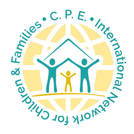|
No one tells you what to expect after a divorce. For some people, it's a total relief. They can finally start living their lives the way they want to. But for others, it can be challenging. There's so much change happening all at once, and it can be hard to know where to start. In this blog, we will go through ways to be happy in your post-divorce life.
Grieving Leads To Happiness The process grieving is a necessary part of moving on. Research has shown that those who don't allow themselves to grieve after a divorce are more likely to experience long-term negative effects such as depression and anxiety. So what does it mean to grieve? It means that you go through the five stages of grief: denial, bargaining, anger, sadness and eventually acceptance. And it’s important to remember that grief is not a straight line so you may be in any of the 5 stages at any point in time. These emotions are all normal reactions to grief and it’s common to cycle through these stages multiple times. Allow yourself the time and space to grieve in whatever way works best for you. Journaling is a great tool to help you process your grief. With time and patience, it is possible to feel happier and more fulfilled as you go through the grieving process. Have A Support System Divorce can be a confusing and emotionally charged process. It’s important to build and reach out to your support system. This could be a divorce coach, close friends, a therapist, a support group, a minister or family members. Talking about what you are going through can help you make sense of your emotions and move on. A support system can offer so much when you’re in need of practical advice, a safe place to vent or even help with childcare. Learn To Manage Your Finances Taking control of your finances after a divorce is important so that you can understand and have clarity about so many important decisions in your life. First, make a budget from your previous year of expenses so that you can project out what you need to live on. Start by listing your monthly income and expenses, then see where you can cut back or make adjustments. Second, get organized and keep all of your critical financial documents in one place so you can easily find them when you need them. This includes things like tax returns, bank statements, and investment accounts. A financial advisor, accountant and a CDFA can help you with all of this. Celebrate Singleness Being single after a divorce can be liberating. Your relationship status for so long defined you - now you get to define yourself. This is a time to reconnect with who you are and what makes you happy. It's also a chance to set some new goals and create a life that is even better than before. Of course, there are challenges to being single, but that’s all part of the journey. Embrace your new status and enjoy being single. You may just find it's something to be grateful for! Indulge In Self-Care It can be easy to get lost in the shuffle of everyday life and put your own needs on the back burner. However, it's crucial to take some time for yourself to recharge and refocus. Dedicate some time each week to do something that brings you joy, whether taking a yoga class, going for a walk in nature, reading your favorite book, or getting a massage. You have to make self-care a priority because if you wait until you have time, you may not ever make time for this. Develop New Interests After a divorce, it can be difficult to know what to do with your life. You may have spent years focused on your family, and now you find yourself suddenly with a lot of free time. This is an opportunity to pursue interests that you never had time for. Maybe you've always wanted to learn to play the guitar or take up painting. Perhaps you've always dreamed of traveling but never had the chance. Now is the perfect time to develop those interests. It will give you something to focus on outside of your divorce and help you meet new people. Don't be afraid to pursue your passions after a divorce – it can be just what you need to start fresh and build a great life for yourself. Yes, You Can Be Happy After Divorce! Divorce is one of the most difficult things a person can go through. But it doesn't have to be the end of your happiness. You can be happy after divorce. Take your divorce journey one day at a time, and don't be afraid to reach out for help when you need it. You’ll find that each step that you take to move forward will make it that much easier to continue. And eventually, you’ll become so grateful for the new life that you have and you won’t be able to imagine any other life. The effects of divorce can be devastating for children. Children of divorce are more likely to struggle academically, mentally, and in their relationships. They frequently have feelings of betrayal, anger, and sadness. While some children can overcome these obstacles, others may struggle well into adulthood.
The good news is that there are several things parents can do to help their children through the process so that they are protected from the negative consequences of divorce. Here are three crucial things to keep in mind. Explain What’s Happening in Your Family in Age-Appropriate Terms and Listen to What Your Children Have to Say Telling your children that you’re getting divorced is one of the most difficult conversations you can have. It’s important to tell your children together with their other parent about the divorce. Create a script together so that you both agree on what to say. Avoid blaming either parent and instead emphasize that both parents still love them very much. You can help your children understand and cope by explaining that sometimes couples grow apart and sometimes they should live apart. Let your children know how their lives will change. Children are primarily concerned about themselves and focusing on how their lives will be impacted is helpful. Let them know how their lives will be the same and what may change. Encourage your children to ask questions and provide answers to their questions. Only provide details that are absolutely necessary for them to know. Younger children don’t need to know much about why the marriage is ending. Tell them simple, concrete terms - for example, which parent will move out, where they’ll live, what school they’re going to, etc. Older children may want to know more details about the divorce but it’s not necessary to go into too much detail. You can say that you tried to work to make things better. You can reassure them that you both will continue to work together to be there for them. It’s important to allow your children time to process their feelings. Don’t push them to talk. Instead let them know that you’re available to them any time they feel like talking. Check in with them in the next few hours after you tell them and continuously over the next days, weeks and months. Children react differently, with some children having emotional reactions at different times. The relationship between you and your spouse while you’re going through divorce has an impact on your children. Even if you and your spouse get along in front of your children during your divorce, your kids can still sense if there's tension. They may become anxious themselves or even start to act out. It’s important to maintain a consistent routine, communicate openly with your kids, and to be understanding of their feelings. It's also important to avoid putting your kids in the middle of any arguments. This will help your kids feel more secure during this time of change. Make Co-Parenting A Success Co-parenting is when both parents share the responsibility of raising their children even though they’re separated or they don't live together. Children have to deal with their parents separately which is very different from what happens in an intact family. They’ll be living in two different homes and having two different sets of rules. They may feel different from their friends and may be ashamed of being in a divorced family. Parents must work together and focus on their children. Children require patience, love, and support from both of their parents. Parents need to put their own feelings aside and communicate with each other about the children’s schedule, how the children are doing emotionally, and how they can work together to support their children through this. There are steps you can take to help protect your child from feeling caught in the middle of arguments.
Think of your children’s other parent as a colleague or coworker who you need to work with for the good of your child. Don’t discuss past emotional issues. Focus on the present and future in your discussions in a non-emotional manner. Working With A Therapist Can Help Children of divorce can benefit greatly from seeing a therapist. In individual therapy, they're more likely to feel safe expressing their authentic selves and discussing the hurtful feelings they may have towards their parents. They may also feel more comfortable discussing complex topics, such as their fears and anxieties, with a therapist than with their parents. Furthermore, a therapist can provide children with tools and resources to help them cope with the challenges of divorce. Final Words Divorce is never easy, but with the right tools and support, you can help your child through it. Your child's emotions are valid. No matter what your child may say, they are going through a lot of change and upheaval during a divorce. It's important to validate their feelings and let them know it's okay to feel the way they do. They need your support now more than ever. We hope these tips have given you a good starting place as you begin to navigate this difficult time. Are you in a relationship with someone who makes you feel like you're constantly walking on eggshells? Do you think you can never do anything right and that your partner is always ready to criticize or accuse you of something? If so, then you may be experiencing gaslighting.
Unfortunately, gaslighting is a common form of emotional abuse. In this blog post, we'll discuss what gaslighting is, how to identify it, and what steps you can take to protect yourself from it. What is Gaslighting? Gaslighting is a type of emotional abuse in which the abuser subtly or overtly undermines the reality of their partner. It is a particularly insidious form of abuse done gradually, making it difficult for the victim to detect. Even if the victim is aware that something is wrong, they may doubt themselves, believing that they are being paranoid. Signs That You're Being Gaslighted Listed below are common signs that your partner is gaslighting you:
What Can You Do About it? Recognize the problem – It is critical to recognize the signs of gaslighting. Common examples of gaslighting:
Practice self-compassion – You deserve to be treated with respect and kindness. Fill your life with people who make you feel good about yourself and who will support you during difficult times. Healing from gaslighting will take time, but it is possible. You are strong and capable of overcoming this challenge. Confront your partner – Try to have a conversation with them about it. There's a possibility they're not even aware they're doing it, and simply bringing it to their attention may be enough to get them to stop. You can also put up boundaries. If your partner treats you disrespectfully, end the conversation and let them know that you’ll speak to them when they are respectful. Leave the relationship – It's critical to take action if you're in a relationship with someone who gaslights you and won't stop the behavior. If your partner becomes enraged or puts you in danger, you should think about ending the relationship. Remember that you’re entitled to a healthy and secure relationship. Gaslighting can be a sign of emotional abuse, and it can have a significant impact on your mental and emotional health. If you're in a relationship with someone who is gaslighting you, a therapist or marriage counselor can work with you individually or as a couple to give you ways to improve the behavior and possibly improve the relationship. Are you frustrated because your partner never seems to hear what you're saying? Do they only see their point of view? You might be dealing with a narcissist. Narcissists have trouble listening and understanding others because they are so focused on themselves. To effectively communicate with a narcissist, you need to understand their perspective and use tactics that will get their attention. Here are some tips to help you get started.
Don't take things personally When dealing with a narcissist, know that their behavior has nothing to do with you. Narcissists are driven by a deep sense of insecurity and may resort to manipulation or bullying to feel superior. Therefore, it’s crucial to remind yourself that their misbehavior is not a reflection of your character but rather the result of inner conflicts and personal struggles. Avoid arguments When you disagree with a narcissist, it isn’t usually doesn’t go well. Therefore, if you’re going to talk about something you disagree about, you should choose what’s most important and let everything else go. A narcissist will do anything to make you feel small and insignificant and an argument is a great opportunity for them to do that. Keep interactions brief When dealing with a narcissist, it's best to keep your interactions as brief as possible. Listen more than you speak and don’t reveal any unnecessary personal information. Keep a half-smile on your face and pay attention. Focus on the topic at hand When you get into a conversation with a narcissist, you may notice that they consistently go on tangents, talking about things that are unrelated to the original topic. This is because they feel more powerful the more that you listen to them. As you become aware of this behavior, you can politely steer the conversation back to the original topic. Avoid getting affected by the insult Narcissists are masters of manipulation. They know what to say to get you into an argument. And they'll use everything against you, from past mistakes to current actions. To deal with a narcissist, ignore their insults; this will diffuse the situation and avoid a fight. If you engage with the narcissist, they will only hurt you more. Don't feel compelled to explain or defend yourself. Just bite your tongue and focus on what you need to talk about. If all else fails, make up a reason to end the conversation. Remain calm and compliment Remain calm when engaging with a narcissist by practicing deep abdominal breaths. This will enable you to think through how you’ll respond instead of reacting emotionally. You’ll more able to implement the above techniques. Also, make positive statements about the narcissist and be extremely polite. This will help them see you not as an enemy and therefore they may be less adversarial with you. Final Thoughts The narcissist is a difficult person to have a conversation with, but there are ways to make it work. Remember not to take things personally and remain calm so that you can think through how to respond rather than reacting emotionally and defensively. With practice, you’ll get better at being able to lessen the conflict and avoid being drawn into negative interactions. As you go through your divorce, imagining life post-divorce can be difficult. You can get caught up in the day to day challenges and lose sight of what your life will look like after you’re legally divorced. One of the best ways to make the transition easier is to set goals for yourself. Doing so will help you focus on what's important and keep you moving forward. Here are a few tips on setting goals during a separation or divorce.
Keep your goals focused on what you want your future life to look like Give yourself some time to think about your future life - post divorce. Write down where you’d like to live, what you’d like to be doing, how you’ll spend time with your children, and anything that you can think of that will make the next chapter of your life what you want it to be. If you’re having trouble with this, enlist a friend, a therapist with expertise in divorce or a divorce coach to help you. A therapist with expertise in divorce and a divorce coach are specifically trained to provide you the space and the tools to help you determine what you want in your divorce. This step is key because you need to know what you ultimately want in your divorce in order to negotiate with your soon-to-be-ex (STBX). Too many people hire attorneys and ask their attorneys what they should fight for. Attorneys are trained in the law, not in helping people develop their divorce goals. Divorce goals to consider:
Your STBX can have different goals and that’s ok. You’ll need to compromise so that you both are able to meet your most important goals. Set your personal goals Through divorce you can experience personal growth in a profound way. Below are ideas for personal goals:
Set dating goals If you’re interested in dating post divorce, you want to make sure that you are fully healed from the ending of your marriage. You don’t want to rush into another relationship before you’re ready. Also, your children need you so you need to be able to balance taking care of your children, work and all the other responsibilities of life. A new relationship will require your time and energy. Think about these questions:
If you need support with this, consider seeing a therapist to work through all of the grief, anger, and other emotions that you've experienced. It's essential to take time for yourself and do things you enjoy, whether new hobbies, travel, or just reading a new book. Take a break before dating again and think about what a healthy relationship means to you. Once you feel like you have fully grieved and are able to have perspective about your marriage and divorce, starting to date can be a very healthy experience. Each person you meet is another opportunity to learn about what you want and how you want a new relationship to be. Achieving your goals Write down your thoughts related to your goals in a journal. As you write your thoughts, you’ll process your feelings and learn more about yourself and what you want. Then you can run it by a friend, therapist or divorce coach and refine your goals to make them specific, measurable and achievable. You want to put a time frame on each of your goals so that you can be accountable to yourself. These steps will help you develop a well thought out plan to achieve your goals for your future post-divorce life. Are you unhappy in your marriage and thinking about divorce? Research shows that a person thinks about divorce for an average of 7 years before making the decision to divorce. Divorce is one of the most difficult decisions and it makes sense to consider the following before making a final decision:
|
AuthorJill Barnett Kaufman, MSW, LCSW and Certified Parent Educator is an experienced clinician who helps clients discover new ways to resolve a variety of challenges and bring more happiness and peace into their lives. Archives
November 2023
Categories
All
|
|
If you are in crisis or in need of emergency assistance, please call 911. |
|
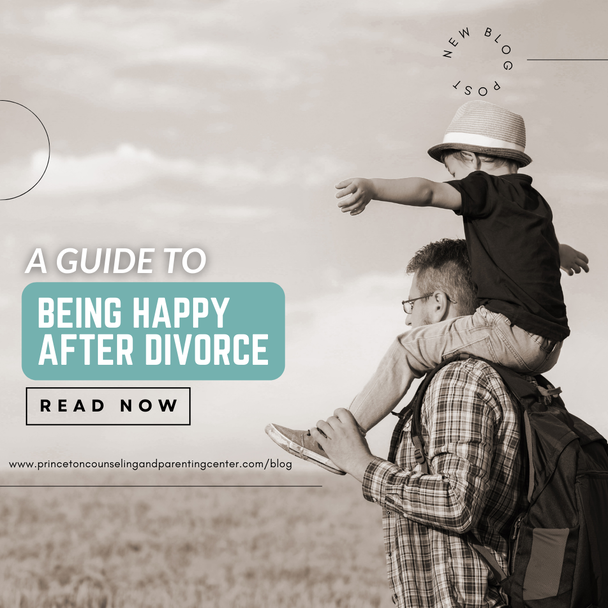
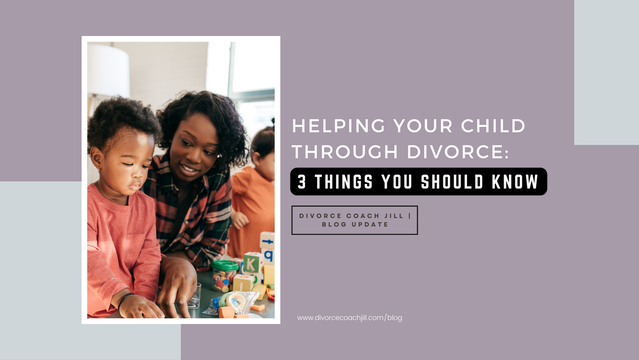
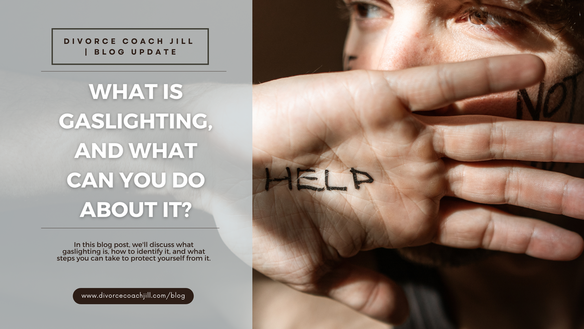

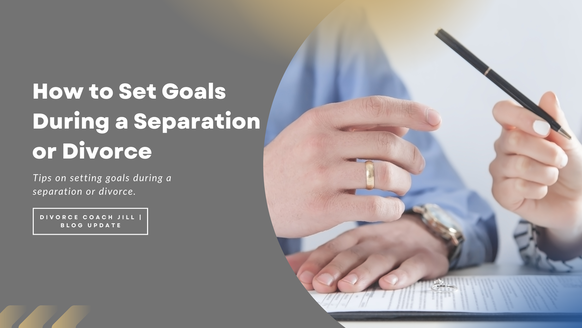







 RSS Feed
RSS Feed


